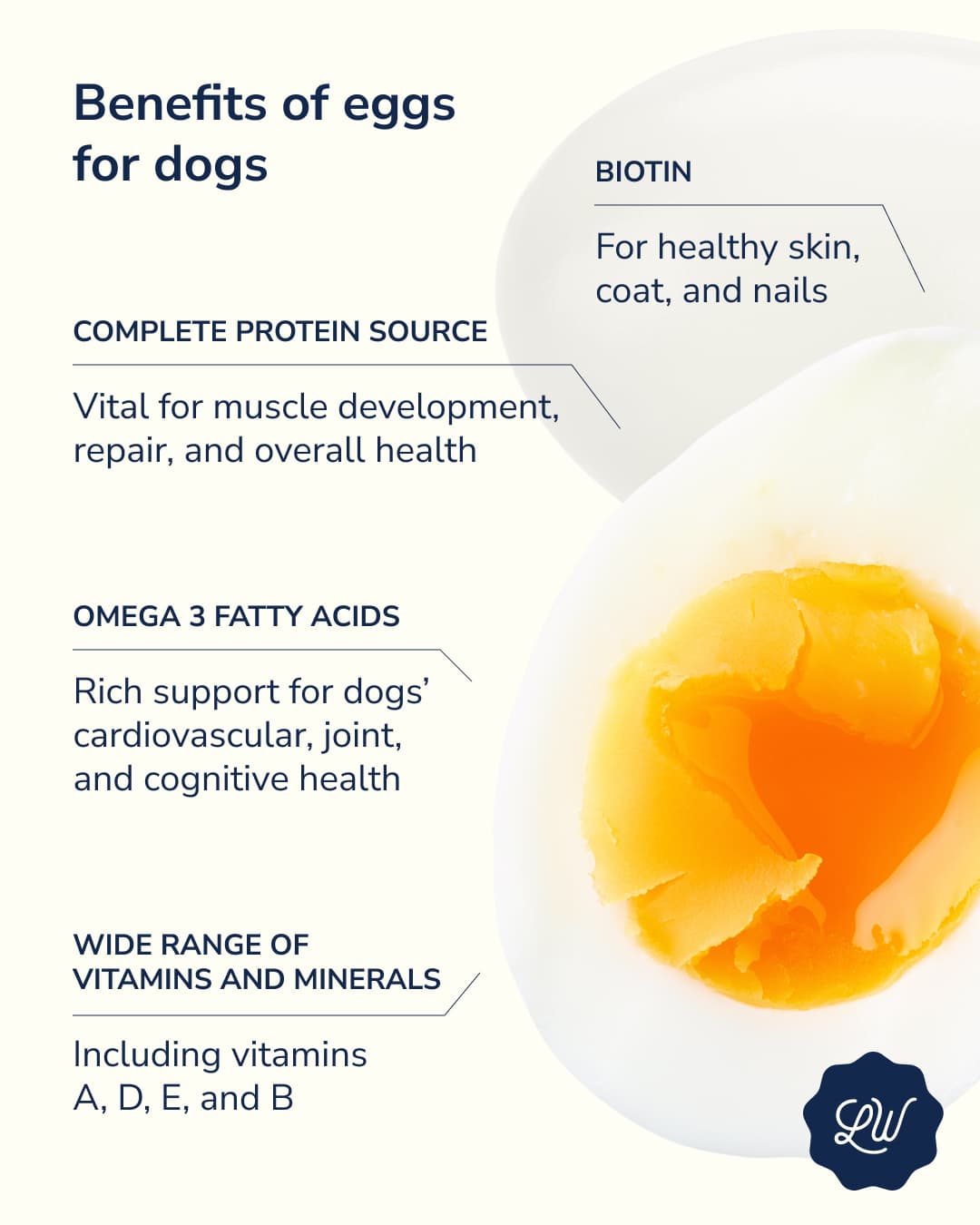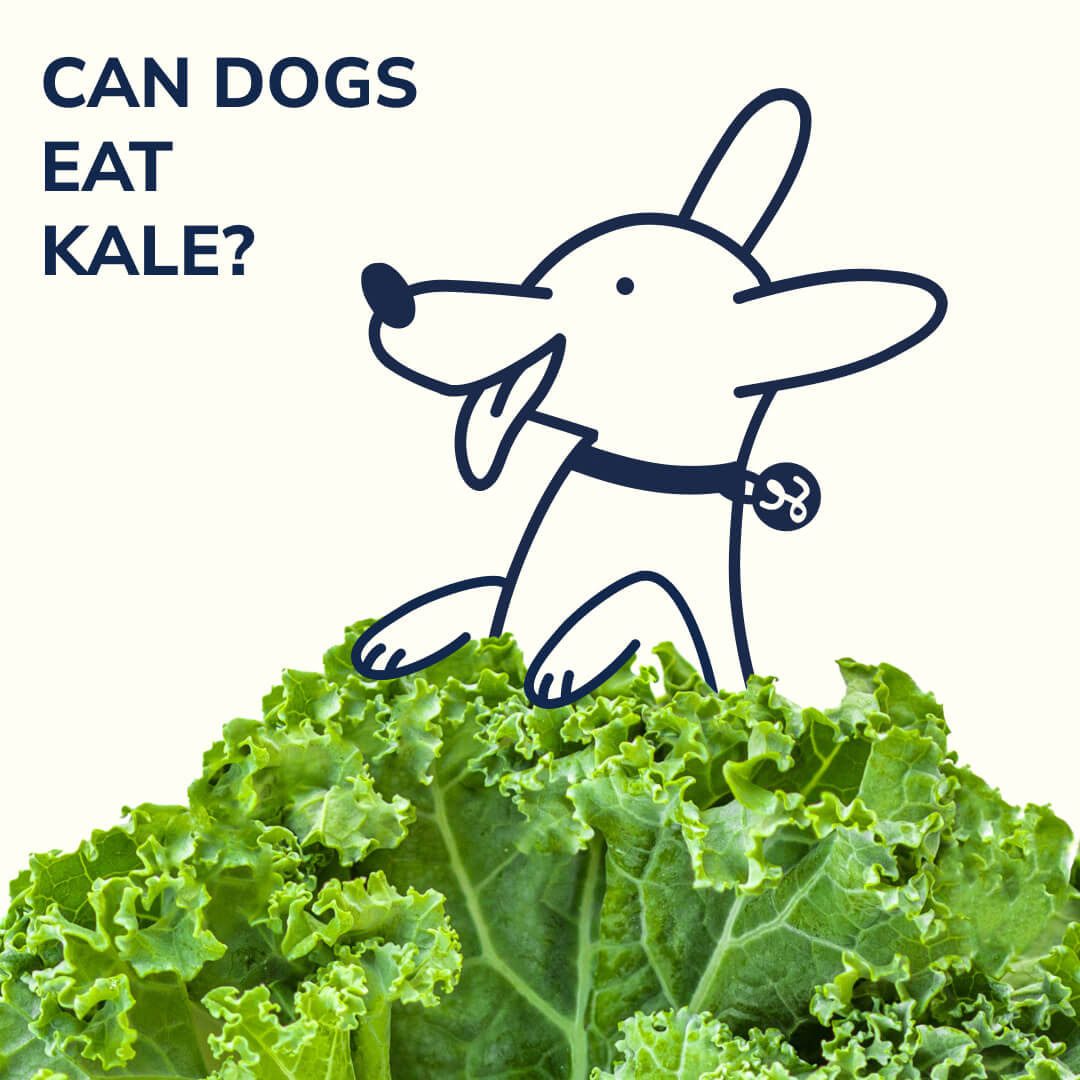As pet owners, we constantly strive to ensure our beloved dogs receive optimal nutrition, often focusing heavily on the protein aspect of their diet. When we think protein, perhaps beef, fish, or lentils might be our choice of protein. It’s interesting to consider that, among the many food options available, eggs stand out as a wholesome and possible nutritious choice. But, you might wonder, eggs for dogs?
In this article, we'll dive into the nutritional profile of eggs, their benefits for dogs, and safe preparation methods to ensure your furry friend enjoys this dietary addition without any risks.
Nutritional Benefits of Eggs for Dogs:
Packed with essential nutrients, eggs offer a range of health benefits for our dogs.

Complete Protein Source:
Eggs contain all the essential amino acids required by dogs, making them a complete protein source. These amino acids are vital for muscle development, repair, and overall health in dogs, ensuring they receive the necessary building blocks for optimal growth and maintenance.
Vitamins and Minerals:
Eggs boast a variety of vitamins and minerals crucial for your dog's well-being. From vitamin A for vision to vitamin D for bone health, and from vitamin E for skin health to B vitamins for metabolism, eggs provide a comprehensive array of nutrients to support your dog's overall health.
Omega-3 Fatty Acids:
Rich in omega-3 fatty acids, particularly in the yolk, eggs offer anti-inflammatory benefits that support cardiovascular health, joint health, and cognitive function in dogs, contributing to their overall well-being.
Biotin:
Biotin, abundant in eggs ( especially in the yolk), is essential for maintaining healthy skin, coat, and nails in dogs. Incorporating eggs into your dog's diet can promote a shiny coat and reduce the risk of dry, itchy skin in dogs.
Preparing Eggs for Dogs Safely:
While eggs offer numerous health benefits for dogs, it's crucial to prepare them safely to avoid potential risks, especially when it comes to feeding raw eggs.
Cooked Eggs for Dogs:
Cooking eggs thoroughly is the safest way to prepare them for your dog. Scrambled, boiled, or poached eggs are excellent options that retain their nutritional value while eliminating any harmful bacteria that may be present in raw eggs. Avoid adding seasoning or cooking oils, as these can be unnecessary and potentially harmful to your dog.
Raw Eggs for Dogs? Caution advised:
Feeding raw eggs to your dog poses certain risks, including the potential for salmonella contamination. Raw eggs may also contain avidin, a protein that can interfere with biotin absorption, leading to deficiencies over time. While some proponents of raw feeding advocate for feeding raw eggs, we believe the risks outweigh the potential benefits. It's best to err on the side of caution and opt for cooked eggs instead.
How much egg can I give my dog?
As with any new food introduced into your dog's diet, moderation is key. While eggs offer numerous health benefits, feeding them in excess can lead to weight gain or digestive upset.
One egg contains around 77 calories, 6 g of protein, and 5 grams of fat.
How much exactly you can give your dog depends on several factors including the type of food you’re giving your dog, the dog’s age, mobility, and any existing diseases. While large dogs might be able to enjoy up to one egg a day, smaller dogs are advised to eat no more than 1 egg per week or less.
In my case, I have 2 westies, weighing 7 and 8 kg each approx. and we cook for them every day with organic ingredients. We give them 1 egg each per week max.
What about Egg Shells in Dog's Diets?
Finely ground eggshells can be a good source of calcium for your dog’s diet (especially if you’re given them home-cooked, as I do), but they can also be a source of bacteria contamination, so I prefer to avoid it and source calcium from, for example, cottage cheese, that my pups love.
In conclusion, eggs can be a valuable addition to your dog's diet, providing essential nutrients such as protein, vitamins, minerals, and healthy fats. By preparing eggs safely and in moderation, you can ensure your pup benefits from the nutritional benefits without any associated risks. Whether scrambled, boiled, or poached, incorporating eggs into your dog's meals can contribute to their overall health and well-being.



